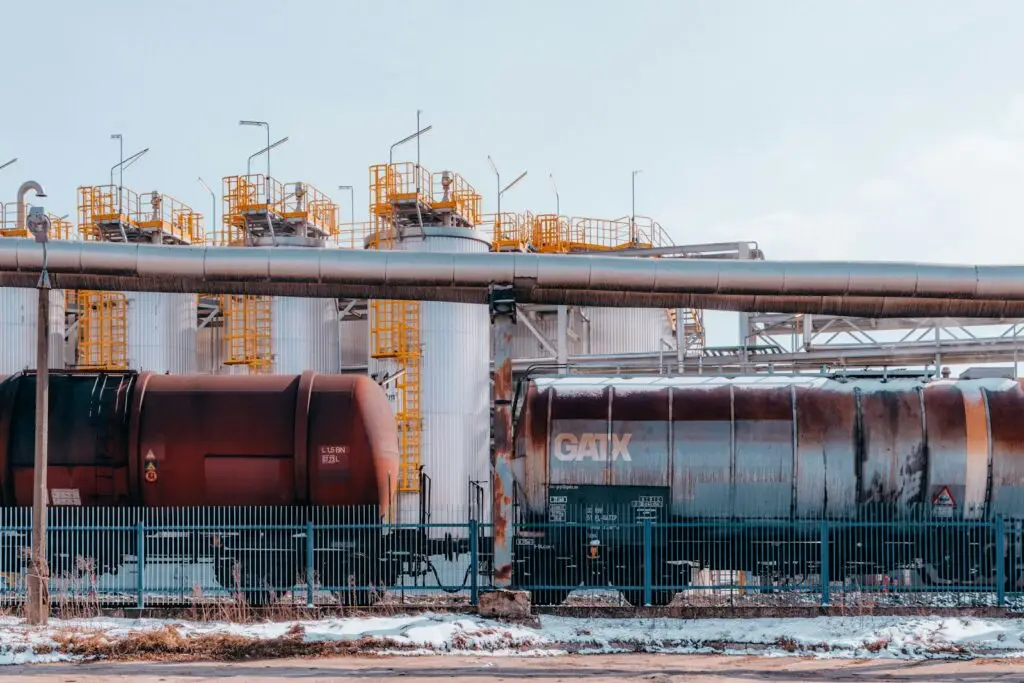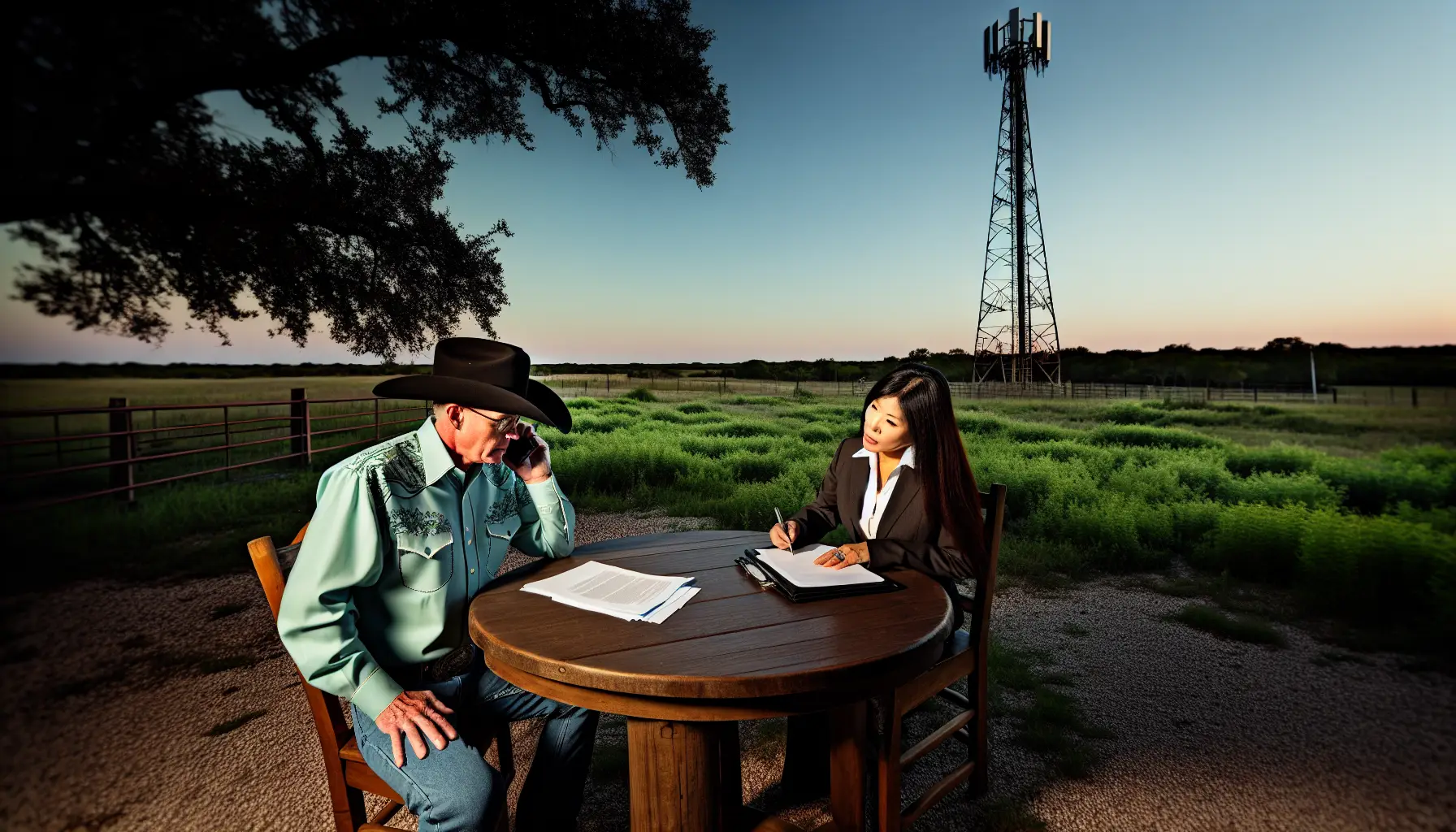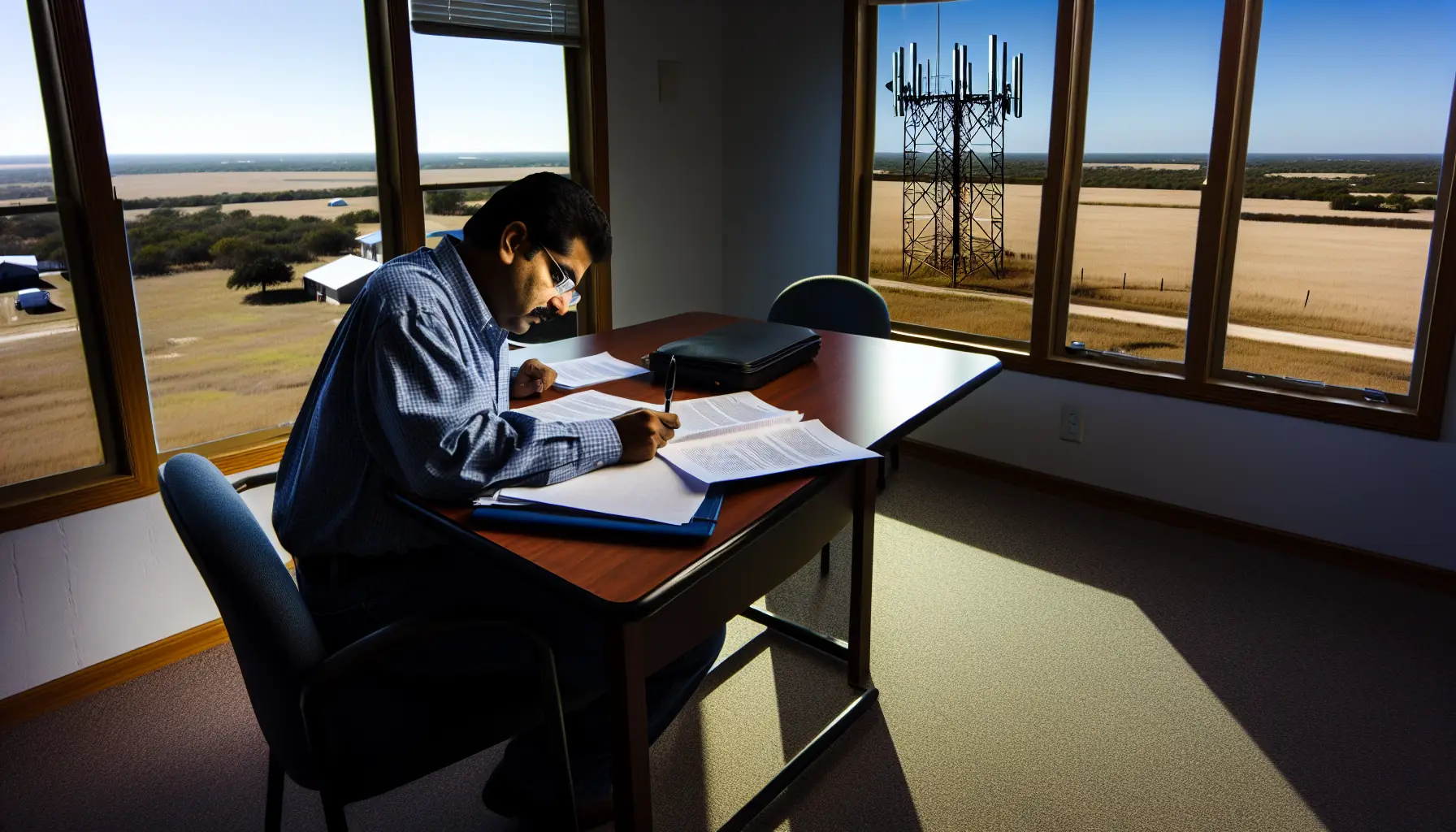Midstream infrastructure is essential for the oil and gas industry. It helps transport, store, and process resources efficiently. This process moves resources from extraction sites to end-users. Imagine pipelines and storage facilities as the highways and rest stops that keep traffic flowing smoothly. For real estate professionals, investors, and landowners in Texas, it is important to understand midstream infrastructure. Knowing how it works and the legal challenges it brings can help make better decisions. When dealing with easement agreements, land use disputes, or regulatory rules, understanding this important network can protect your investments. It can also help you take advantage of new opportunities.
In This Article:
Breaking Down Midstream Infrastructure
What is Midstream Infrastructure?
Midstream infrastructure refers to the systems and facilities that transport, store, and process oil and gas after extraction. Key components include pipelines, storage tanks, and processing plants. Pipelines are important for transporting crude oil and natural gas over long distances. Storage facilities keep these resources until they are ready to be sold. Processing plants play a crucial role in cleaning and preparing the product for distribution. These parts work together to create a smooth flow in the oil and gas supply chain. This helps the industry meet consumer demand effectively.
Why is Midstream Infrastructure Important?
This infrastructure acts as a bridge between production and consumption. Without it, upstream operations—where oil and gas are extracted—could grind to a halt. Reliable midstream systems allow producers to transport resources promptly, minimizing downtime and avoiding loss of revenue. For Texas landowners and investors, strong midstream networks can raise property values. They can also create new opportunities. However, it is important to manage land use and follow legal rules carefully.
Common Legal Challenges in Midstream Projects
Takeaway Capacity Bottlenecks
Takeaway capacity refers to the volume of oil and gas that midstream systems can handle at a given time. Bottlenecks, much like traffic jams, occur when supply outpaces infrastructure capacity. These delays can lead to shipment disruptions and financial losses. Resolving bottlenecks often requires upgrading pipelines, building additional facilities, and working with a Texas attorney to ensure legal compliance during the expansion process.
Regulatory Compliance Issues
Federal and state regulations are established to oversee midstream infrastructure, addressing critical aspects such as environmental impact, safety protocols, and operational standards. These regulations are designed to ensure that all activities are conducted responsibly and sustainably. Not following these rules can lead to serious problems. This includes large fines and expensive project delays that can disrupt operations. Both operators and landowners need to stay informed about the latest legal rules and regulations. Staying alert is important to avoid delays. It helps ensure smooth and efficient project work in changing rules.
Easement Agreements and Land Use Rights
Easement agreements are pivotal in midstream projects, as they grant legal permission for pipelines or facilities to cross private land. However, disputes can arise around compensation, environmental concerns, or land use disruptions. Disagreements not only delay projects but can also lead to costly litigation. Evaluating easement agreements with Texas lawyers specializing in land use disputes can safeguard both landowners and operators, ensuring fair terms for all parties involved.
Mitigating Risks Through Strategic Planning
Thorough Planning in Infrastructure Development
Comprehensive planning is key to mitigating risks in midstream infrastructure. Finding possible legal issues, like objections from landowners or places that face strict rules, can save time and money. For instance, Texas rural property developments often face unique hurdles that require tailored legal guidance. Strategic planning also includes evaluating environmental impacts and coordinating with stakeholders to minimize resistance during project execution.
Crafting Strong Contracts
Reliable contracts are the key to any successful midstream project. They make sure everyone knows their roles and responsibilities. These contracts should comprehensively address critical concerns, including transportation capacity, compliance responsibilities, and effective dispute resolution mechanisms. For example, adding clear clauses about how to handle bottlenecks or land use disputes can help. This creates a clear plan for moving forward if problems come up. By planning ahead for these issues, stakeholders can reduce disruptions. This helps keep the project moving forward. In the end, it leads to a more efficient and successful operation in the midstream sector.
How Real Estate Professionals Can Benefit
Understanding Midstream Infrastructure for Smarter Investments
For real estate investors and professionals, knowledge of midstream infrastructure can be a powerful tool. Properties located near efficient pipeline networks or storage facilities often carry greater potential for growth and profitability. Investors can use this knowledge to find valuable locations. These places should match long-term infrastructure improvements. This helps them get the most from their investments.
Partnering with Legal Experts for Support
Midstream projects are as legally complex as they are operationally intricate. From easement agreements to land use rights, having legal expertise on your side provides a significant advantage. Experienced attorneys who know Houston real estate law can help you with legal rules and settlement talks. They will make sure your assets stay safe.
Final Thoughts
Midstream infrastructure is an important part of the oil and gas industry. It affects property investments, land use, and regulations in Texas. Whether you are an investor eyeing a promising property or a landowner navigating easement disputes, understanding the role and challenges of midstream systems is invaluable. Carefully crafted contracts, thorough planning, and proactive legal guidance are essential tools for navigating this sector. Daughtrey Law Firm‘s extensive experience in real estate law, mineral rights, and land use disputes offers a trusted resource to help safeguard your investments and decisions.












